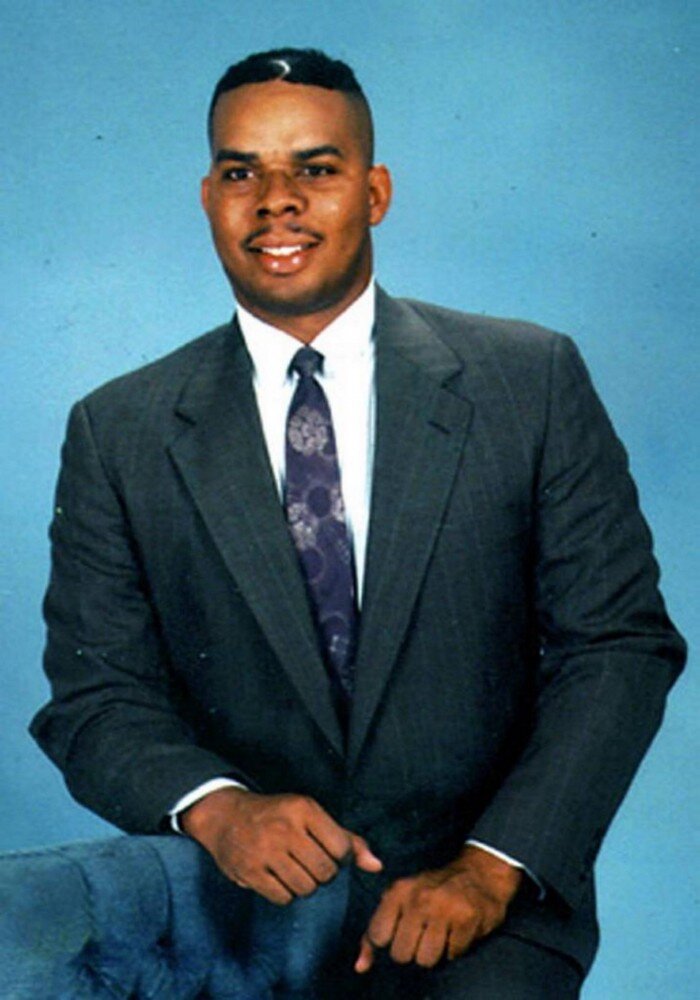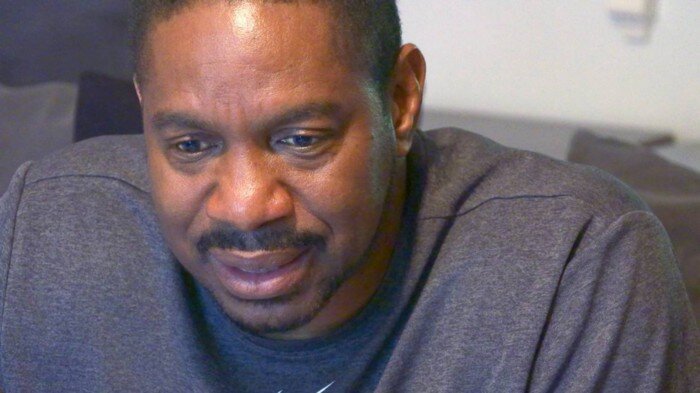
The Pain Remains
September 24, 2020
The mornings are the worst. I tend to miss the headlines at night, I’m too high to scroll through my socials. But in the morning, I awaken to the feeling that nothing will ever change. The justice system failed Breonna Taylor or worked the way it was intended to, depending on how you look at it.
“The right” often points to an excuse as a justifiable reason to kill.
In Breonna Taylor’s case, the question was, “Why did Breonna’s boyfriend fire his registered gun at officers?”
In Jacob Blake’s case, the question was, “Why did Blake brush the officer aside and open his car door?”
In George Floyd’s case, the question was, “Why did Floyd resist arrest?”
I’d like to think Floyd and Taylor would be alive if those things didn’t happen. I’d like to think Blake wouldn’t have gotten shot seven times had he not opened his car door. But the truth is, even when black people comply, officers still kill.

Kenneth Walker
This is exactly what happened to Kenneth Walker when he laid face down on the highway on December 10, 2003.
Every time a black person is killed unjustly by the police the effects are unfathomable. A life is not simply lost. A breathing living soul is ripped from the arms of their loved ones never to be seen again. An immense darkness leeches onto those in mourning. It’s incredibly difficult to move forward knowing that the police killed someone you cared about.
However in darkness, there is a light. When Kenneth Walker died, a light grew within Rodney Stark. A light that remains shining to this day.
On that fateful day in ’03, Warren Beaulah, Kenneth Walker and two others are pulled over on Interstate-185 near Columbus, GA. The four men are ordered out of their GMC Yukon and told to lay facedown on the pavement. Moments later sheriff deputy David Glisson kills Walker after firing two shots near his head.
Officers say an informant told them the SUV was running drugs from Miami and the occupants were armed and dangerous. No drugs or weapons were found.
Glisson was fired but not tried. His excuse for killing Walker: he lost his balance and his finger squeezed the trigger.
Beaulah was Walker’s best friend and the father of Stark’s half brother. Stark was 8 years old at the time and remembers the day as the day he came to the realization that tomorrow isn’t promised. His feelings for the boys in blue also changed. “The indoctrination is real, the programming is real. In elementary school you’re taught policemen are superheroes. They’re like Batman. They come in and save the day. Then that happened and I’m like ‘holy shit these people just shoot people’. They killed Uncle Kenny,” said Stark.
Prior to Walker’s death, Beaulah frequented Stark’s grandmother’s house and was constantly in Stark’s brother’s life. After that, Stark noticed a change in his brother’s father, “I’m not sure if my brother’s dad really got therapy after that. That’s PTSD, he saw that shit from under his Yukon.”
In the midst of all this chaos, the media capitalizes. The lights and cameras show up. Beaulah is constantly being interviewed while still in mourning. He becomes more distant. He focuses on his job as the head boys basketball coach at the local high school, but neglects his job as a father. “He became absent in my brother’s life. It’s one thing to grow up with your dad never around, but it’s another thing to have him in your life and then boom, he’s just like absent-minded. And they’re at the same school, but my brother can’t connect with his pops outside of school. That fucked with my brother’s development,” recalls Stark.

Warren Beaulah (Mike Haskey / Ledger-Enquirer)
When that officer killed Walker, he also killed the relationship between a son and father. From personal experience, I understand the significance of a father in a child’s life. Stark says his brother’s entire trajectory was compromised, “you can almost pinpoint it, after that my brother’s development went completely left. He jumped out there in the streets. He started wylin”.
Stark knew right then and there he had to get out of Georgia and dream big. “Me and my brother talk about this. We’re both trap babies. For us to be somewhat opposite, It’s almost divine, prophetic,” said Stark.
I learned the phrase “armchair activist” from the famed lawyer Carl E. Douglas. Douglas mentioned how in his old age he is an armchair activist, meaning he can do all the social media posting and signing petitions he wants, but he can’t go out in the field and hit the streets. Stark is the opposite of an armchair activist.
During this unforgettable year Stark has touched down in the same neighborhoods George Floyd, Breonna Taylor and Ahmaud Arbery were killed. Arbery’s death hit Stark the hardest, “he was doing something [jogging] I did every other day when I would go back to Georgia to visit my family.”

Stark briefly lived in Camden County, just south of Brunswick, GA where Arbery was killed. Rodney Stark is Ahmaud Arbery. Ahmaud Arbery is Rodney Stark.
For those that haven’t seen the video, Arbery is shot three times with a shotgun. However he didn’t go down without a fight and that speaks volumes for Stark, “in most of these situations you kind of see people begging for their life, trying to follow instructions, running, all of that shit. But that man fought, he went straight at ’em, under all that pressure, he stood tall.”
Weeks later Stark makes his way to Minneapolis to support George Floyd. “I had the resources, I had the time and I was just left with a decision to make. If this is something I really believe in, am I actually going to step up or am I going to sit in the house and just think on it and talk about it and not really do shit about it,” said Stark.
Stark was an armchair activist, but no more, “before these protests, I was always like ‘protests don’t do shit’. I hear that regularly from black folks. And just like me, it’s coming from people who had never been to a motherfucking protest. It coming from people who never went to march. I shared that sentiment.”
Stark did not understand the significance of protesting. People band together, make signs and chant. But the overall goal of a protest isn’t to chant. It’s to disrupt the economy and vocalize your power. “The purpose of a protest is about occupying space. One common thing in every single city I went to was that the police heavily guarded the highways. They did not want us on the highway at all and the reason being: the highways systems are the blood vessels of the economy. If you cut those off, that’s where all goods and services are transported. No products get delivered and no products get bought if you cut off the roads. A protest in the middle of a big intersection for few hours could cost that city hundreds of millions of dollars” said Stark.
Stark’s story is a testament to what people are going through and holding onto. I’ve know Stark for years and did not know the pain this man was carrying with him. Since a young age he has had a great disdain for police and understandably so. Talk to your friends, support them and be there for them. Always & forever.
Stark left me with a few gems as he always does. The quotes I couldn’t fit into this story are below.
“People talk about reparations people talk about checks. None of that is real. Money is extremely abstract even though it controls so much. The value is in the land. It’s the cornerstone of civilization. Our money used to be back by gold, by silver, by minerals that are valued. Where do minerals come from? The land.”
“Keep striving for something purposeful. Every single one of us born with melanin in our skin is born with a motherfucking purpose and you see the test before us right now. Find a purpose, find something to contribute. Use your talents, use your gifts. All of us got a gift to do something.”
“As long as you live dormant, the world is going to be at peace with you. Would you rather be at war with yourself and at peace with the world? Or at war with the world and at peace with your motherfucking self. Imma always chose the last one.”
